Description
ABSTRACT
Legal Framework for Energy Mix in Nigeria: Regulation and Challenges
Peter C. Obutte* and Olukayode O. Aguda**
The power supply over the years in Nigeria has been consistently disappointing. What is even more appalling is the ratio of resources available to the results seen. Therefore, it has become imperative to consider other sources of energy that have birthed the clamour for energy mix. This article seeks to analyse the available legal and regulatory framework for energy mix in Nigeria. Some of the statutes examined are The Electric Power Sector Reform Act 2005, the Nigerian Electricity Management Services Act 2015 and the Environmental Impact Assessment Act 1992. Some other regulations were also examined, such as the NERC Application for License Regulations 2010 and NERC Licensing and Operating Fees Regulation 2010. Some of the recommendations include a comprehensive legal framework, extensive research, adequate mapping, amongst other things. Finally, energy mix seems to be the big break that the Nigerian energy sector needs, it behoves the policy makers to see it through successfully.
Keywords: Energy Mix, Legal Framework, Regulations, Challenges, Nigeria.
INTRODUCTION
Nigeria is a country with an estimated population of 170 million people, out of which only about 40% of the population has access to electricity supply.1There is a limited extension of the grid to most communities, and it would take decades to reach most areas in Nigeria. Even the available electricity capacity is insufficient to meet the existing power needs of the less than 40% who have access to the national grid. Nigeria industrial development over the years has been bedeviled by myriads of problems, top among which is the erratic nature of electricity supply in the energy or power sector.2 Therefore, it has become a matter of necessity for the exploitation and establishment of other energy resources to complement and supplement the limited power generation and supply available in Nigeria.
It is no longer news that Nigeria is endowed with abundant natural resources of renewable energy, like the sun, wind, hydro, biomass (waste) etc. As an alternative energy, renewable energy will be a practical alternative to supplementing the electricity supply in Nigeria.
* BL, LL.D. Associate Professor, Department of Jurisprudence and International Law, Faculty of Law University of Ibadan; Deputy Director, Centre for Petroleum, Energy Economics and Law University of Ibadan, Nigeria. Email: pc******@***il.com.
** BL, PhD. Lecturer, Department of Private and Business Law, Faculty of Law Ajayi Crowther University, Nigeria. Email: ka*******@***il.com .
- Ministry of Power, ‘National Renewable Energy And Energy Efficiency Policy (NREEEP)-Approved By FEC For The Electricity Sector’ 20 April 2015 accessed 28 February 2021.
- MM Ologundudu, ‘The Epileptic Nature of Electricity Supply and its Consequences on Industrial and Economic Performance in Nigeria’, (2014) 14(4)(I)Global Journal of Researches in Engineering 27.

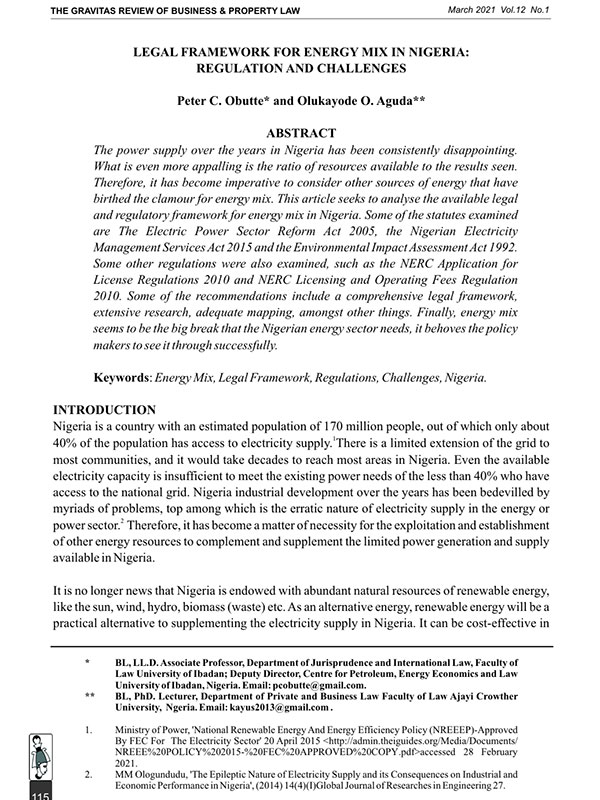
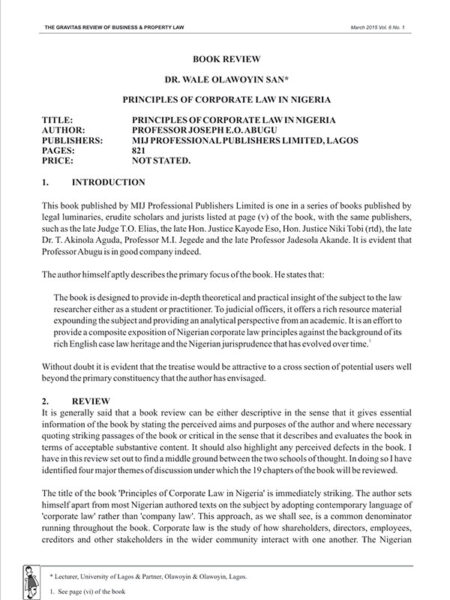
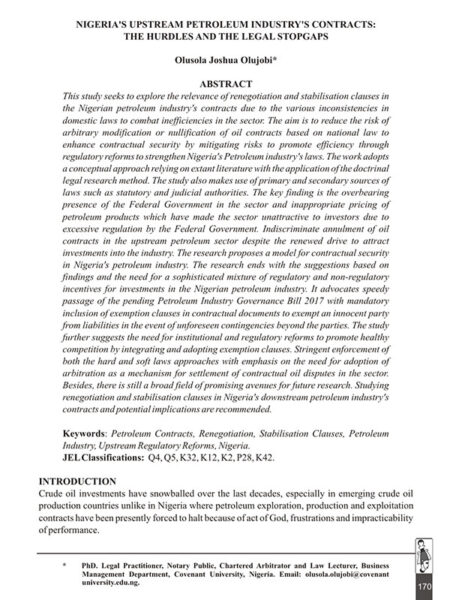
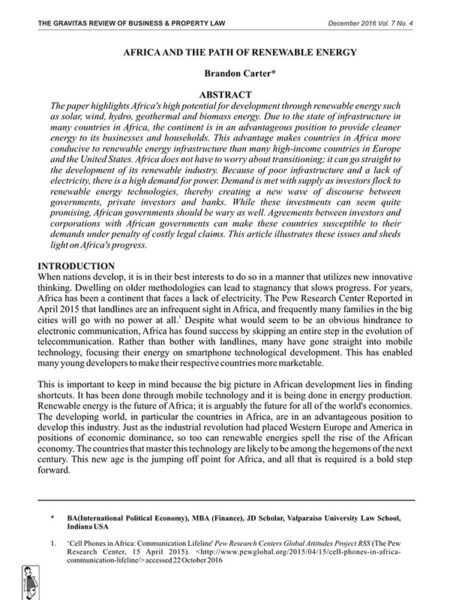
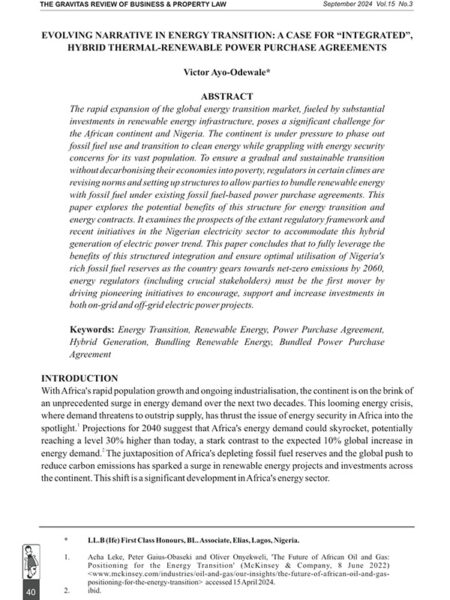


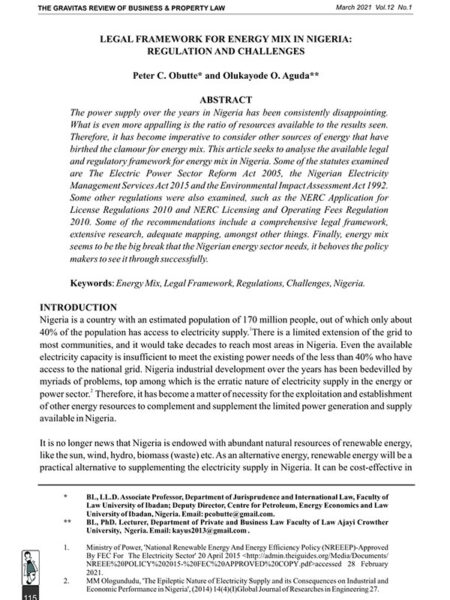
Reviews
There are no reviews yet.